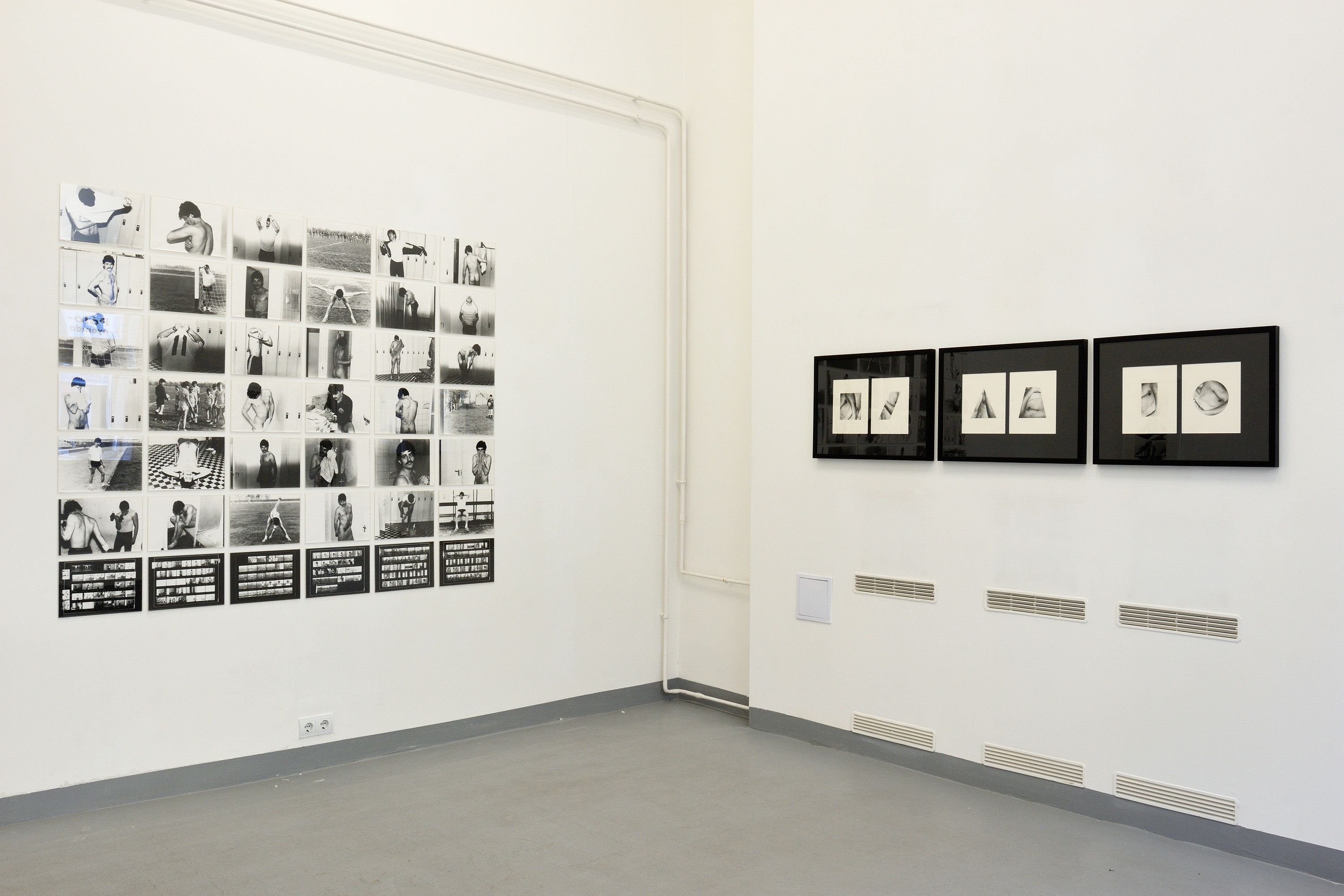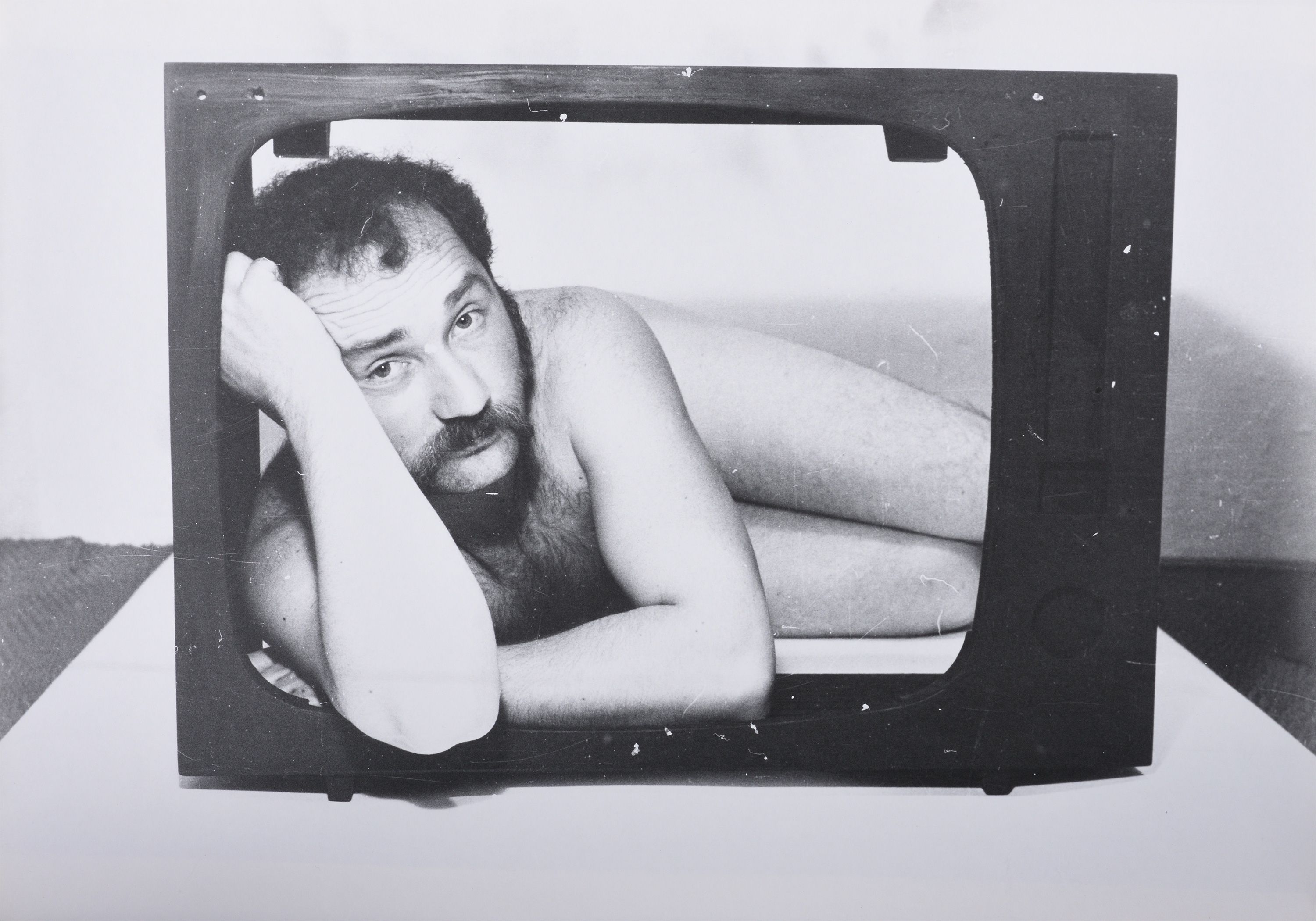Károly Hopp-Halász
Modulated Bodies
| Venue: | acb NA |
| Date: | Apr 19 – Jun 15, 2018 |
Description
acb Gallery is proud to present the second solo exhibition of Károly Hopp-Halász. The current selection features photo-based works by the artist from the 1970s-80s, some of which have been hidden from the profession and the broad public until now. Partly owing to this, the contextualisation and localisation of these works within the artist’s oeuvre has hitherto been incomplete. The works in the exhibition’s focus have been recovered from the legacy of the deceased artist who passed away two years ago, therefore this show is based on this corpus of artworks currently under research and cataloguing.
As a member of the Pécs Workshop artist group, organised from the students of Ferenc Lantos and active from 1968 until 1980, Károly Hopp-Halász conducted experiments based on the formal language of geometry throughout the seventies, implementing them in predominantly traditional media (painting, graphic art) and enamel. From the early seventies, members of the Pécs Workshop began showing interest in the current new media of the age: further developing their predilection for geometry, they carried out land art and photo actions and later photo- and video performances, both individually and collectively. Károly Hopp-Halász’s interest in media art was singular from the very beginning, as regards the Pécs Workshop as well as the period’s Hungarian art as a whole: experimentation with performative practices, the potentials of photography and other technical media were in the focus of his art praxis from the early seventies, and he continuously brought his painting and graphic art into interaction with opportunities offered by the new media.
The exhibition at acb NA presents photo-based works from the 1970s-80s, which illustrate the mediatic interdisciplinarity of the Hopp-Halász oeuvre as well as the artist’s relation to the representation of the male body. Our explicit intention with this selection is to encourage the reconsideration of discourses that treat and hush up the artist’s homosexuality as a taboo to this day. Even after the 1961 abolition of the treatment of homosexuality as a criminal offence, revealing one’s “different” gender identity could entail retribution by the authorities, and therefore publicly proclaiming one’s homosexuality had not been possible until after the regime change of 1989. At the same time, Hungarian academic art historical discourses still present only sporadic exceptions to the conservatism of approaches to identity determined by a heteronormative attitude and a male-dominated social model – such exceptions include the recent research on Tamás Király’s work or the attempts of reinterpreting the oeuvre of El Kazovsky. An explicit approach to the homosexuality of Károly Hopp-Halász is the unavoidable criterion of interpreting his work. From the very beginning his homoerotic inclination was expressly present in his oeuvre, linked to explorations of his own identity (being Eastern European and rural). The depiction of male bodies was manifested, on the one hand, in the analysis of his own body, the documentation of this in photo performances, and his search for possibilities of artistic self-representation (for instance, in the works Private Broadcast and Pseudo Video); on the other hand, it was manifested in photo actions carried out in collaboration with male models, as well as arranged compositions, as content reflecting on his identity (such are the collages from the photo series Pause in Paks, displayed at the current exhibition, or Permitted, Prohibited, Promoted, already provocative in its title, a reference to the infamous cultural policy of the socialist Kádár-era). A photo series from the seventies, on display for the first time at this exhibition, documents the daily life of a football coach in detail, from the men’s locker room to the field, in the form of a spontaneous photo action. For all their intimacy, the photos reflect the freedom of observing the male body, while demonstrating how the visual interests of Hopp-Halász comprise the analysis of the formal relationship between geometry and the human body.
Simultaneously with the exhibition at acb NA, the exhibition space of acb Gallery presents the solo exhibition of Ferenc Ficzek, which helps to contextualise the oeuvre of Károly Hopp-Halász with respect to the Pécs Workshop.
The exhibition is supported by NKA

